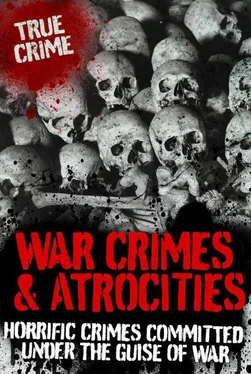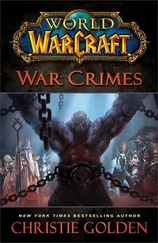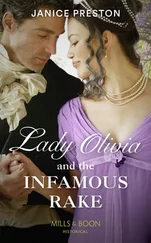The French, confused by conflicting orders from King Philippe VI, went into battle late in the afternoon, virtually blinded by a heavy thunderstorm. Their crossbowmen, the strings of their bows so drenched by the rain that they could not be stretched to the bow, hardly shot a single bolt. They and the French infantry fell in their hundreds under the arrows from the English longbows. (Well used to rain, English longbowmen kept their bow strings dry under their helmets until needed, a habit that is supposed to be the origin of the expression ‘keep it under your hat’.)
During the rest of the day and long into the night that followed, the French made charge after charge against the English, only to be met by a hailstorm of arrows, and in each charge losing many men to the English archers. Many times, the English were desperately hard-pressed, the Black Prince himself often dangerously in the thick of the battle. Edward is famous for refusing to send aid to his son.
Send no more to me as long as my son is alive… suffer him this day to win his spurs; for if God be pleased I wish this day to be his, the honour thereof, and for them that be about him.
The day, and the Battle of Crécy, did belong to the English, and the honour of it to the Black Prince, who won his knight’s spurs at Crécy (they are still on his feet on his tomb in Canterbury Cathedral). Contemporary British reports claim that the French lost 11 princes, 1,200 knights and more than 10,000 foot soldiers at Crécy. However, the English dead totalled just 40. Edward III’s great victory at Crécy resounded through Europe.
Departing from the usual practice of medieval warfare, the English took few prisoners at Crécy. This may have been because they felt themselves to be too small in numbers to be able to oversee a large number of prisoners adequately, but it is surprising, given the ransom value of many of the French and the enormous cost of the war. Edward had already defaulted on his war loans in 1340, bankrupting two major Florentine banking houses in the process. Edward’s mild treatment of his enemy after Crécy stands in stark contrast to the actions he threatened to take against the town of Calais just a year later.
PLEAS FOR CLEMENCY
After Crécy, Edward led his army north to Calais, where his fleet was blockading the port, so that they could embark for England. But Calais was strongly fortified and well defended and Edward had to lay siege to the town until July 1347, before near-starvation caused its governor, Jean Vienne, to offer to surrender if Edward would spare the lives of Calais’ people.
Edward, enraged at having been hindered in France so long by the common people of a town, replied that he would accept the town’s surrender on condition that six of the town’s leading citizens, or burghers, came before him, heads and feet bared and with halters round their necks, and present to him the keys of the town on their knees. He would then take the keys and hang the burghers by the ropes around their necks.
Pleas for clemency from many English knights were brushed aside by Edward and it seemed as if the six burghers of Calais, who had offered themselves to save their town and its citizens, were doomed. Suddenly, Edward’s wife, Queen Phillipa, intervened. She knelt before her fierce husband and begged him, ‘in all humility, in the name of the Son of the Blessed Virgin Mary and by the love you have for me,’ to show mercy towards the men. Edward hesitated, then said that the men could live.
Had Edward III executed the burghers of Calais, men who in themselves posed no threat to the king or his army, it would have been an atrocious act indeed. The fact that it was a woman’s intervention that prevented the atrocity taking place gives added piquancy to the story.
As for the struggle between the English and the French, something far more dreadful than warfare put an end to their immediate differences. The bubonic plague, or the Black Death, hit southern France in 1347. By 1348, spreading like wildfire, the Black Death had reached England, possibly on a ship coming back to England after supplying Calais. It would be years before France and England, their populations dreadfully depleted, could think about making full-scale war again.
In 1350, Edward officially laid claim to the throne of France through his mother, Isabella, daughter of Philippe IV of France. It was a flimsy claim, since Salic Law banned women from inheriting the throne of France, but Edward gave it weight by quartering the arms of the king of France with the three golden lions on the arms of England, and by adopting his motto, ‘Dieu et mon droit’. Adopting St George as the patron saint of England was another clever move, since St George was the patron saint of all European knighthood.
The importance of the English victory at the Battle of Crécy lay much less in the fact that a large French army had been defeated than in the fact that victory at Crécy enabled Edward to secure Calais for the English. This gave England an opening to the rich manufacturing towns of Flanders, which were ready markets for English wool and cloth exports. No wonder that when England lost Calais, its last possession in France, two centuries later, Queen Mary Tudor said that, when she died, the word ‘Calais’ would be found engraved on her heart.
1400s

History can show many examples of men and women who have committed appalling acts of cruelty against their fellow men, not a few of them in the name of religion. But there are few whose actions can match those of Vlad III, ruler of the central European state of Wallachia in the mid-15th century. Not that Vlad stayed quietly and untroubled in his castle, Tirgoviste, during the 20 years of his reign. As with other states in this seldom peaceful region of central Europe, where Islam and Christianity had fought bloody battles for control for centuries, Wallachia was pulled to and fro between rival factions. Vlad, turned out of his castle and his country in the 1460s, spent almost as many years off his throne as on it.
Vlad was born about 1431 in the Danube principality of Transylvania, where his father, Vlad Dracul, was the military governor put in charge of the region by Holy Roman Emperor Sigismund, at a time when Turkish control was strengthening. In 1387, the young Sigismund had founded an order of knights, called the Order of the Dragon (‘Dracul’ in Romanian), which, like the much older Knights Templars and Knights Hospitallers, was a Christian order, devoted to turning back the Islamic tide: the Ottoman Turks had been expanding their influence into eastern Europe for much of the past century. Vlad was a knight of the Order of the Dragon, hence his name, Vlad Dracul.
In 1436, Vlad Dracul was promoted to the throne of the neighbouring state of Wallachia, taking the title Vlad II and installing his family, including Vlad and his younger brothers Mircea and Radu, in the castle of Tirgoviste. Within two years, Vlad II Dracul, probably with an eye to securing his position as a ruler in his own right rather than as a nominee of the Holy Roman emperor, had changed sides. He formed an alliance with the Turks and sent two of his sons, Vlad and Radu, to the court of the Sultan Murad II as insurance for his own good behaviour and future loyalty.
Vlad II’s alliance with the Ottoman Turks was disliked by many of the leading men (‘boyars’) of Wallachia, including the statesman and warrior Janos Hunyadi, who had expelled the Turks from Transylvania in 1442. In 1447, Hunyadi led a revolt of the boyars against Vlad II. Vlad was assassinated and his son Mirea was buried alive after his eyes were gouged out. Sultan Murad granted Vlad II’s other two sons their freedom, and Vlad returned at once to his homeland. Radu chose to stay in Turkey.
Читать дальше













